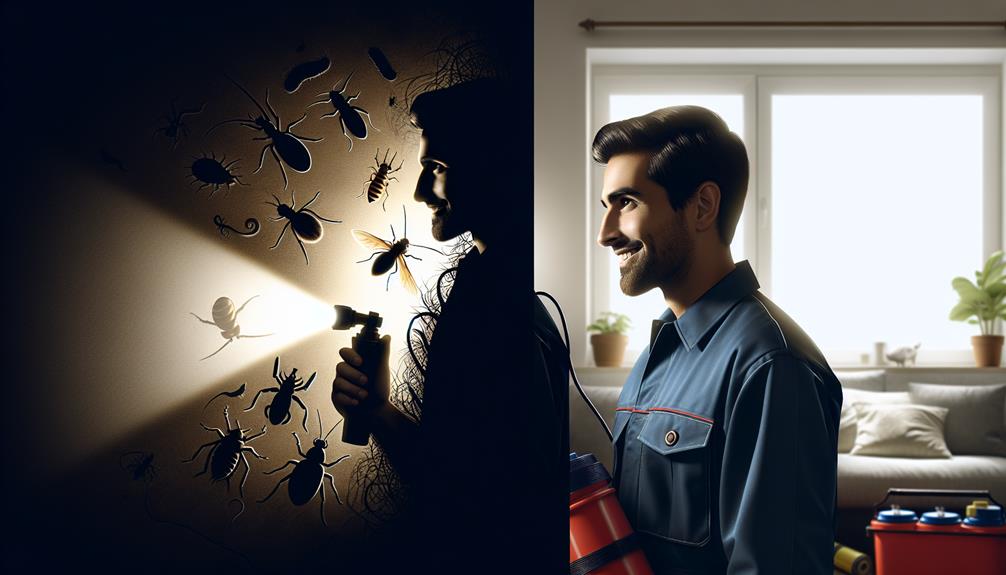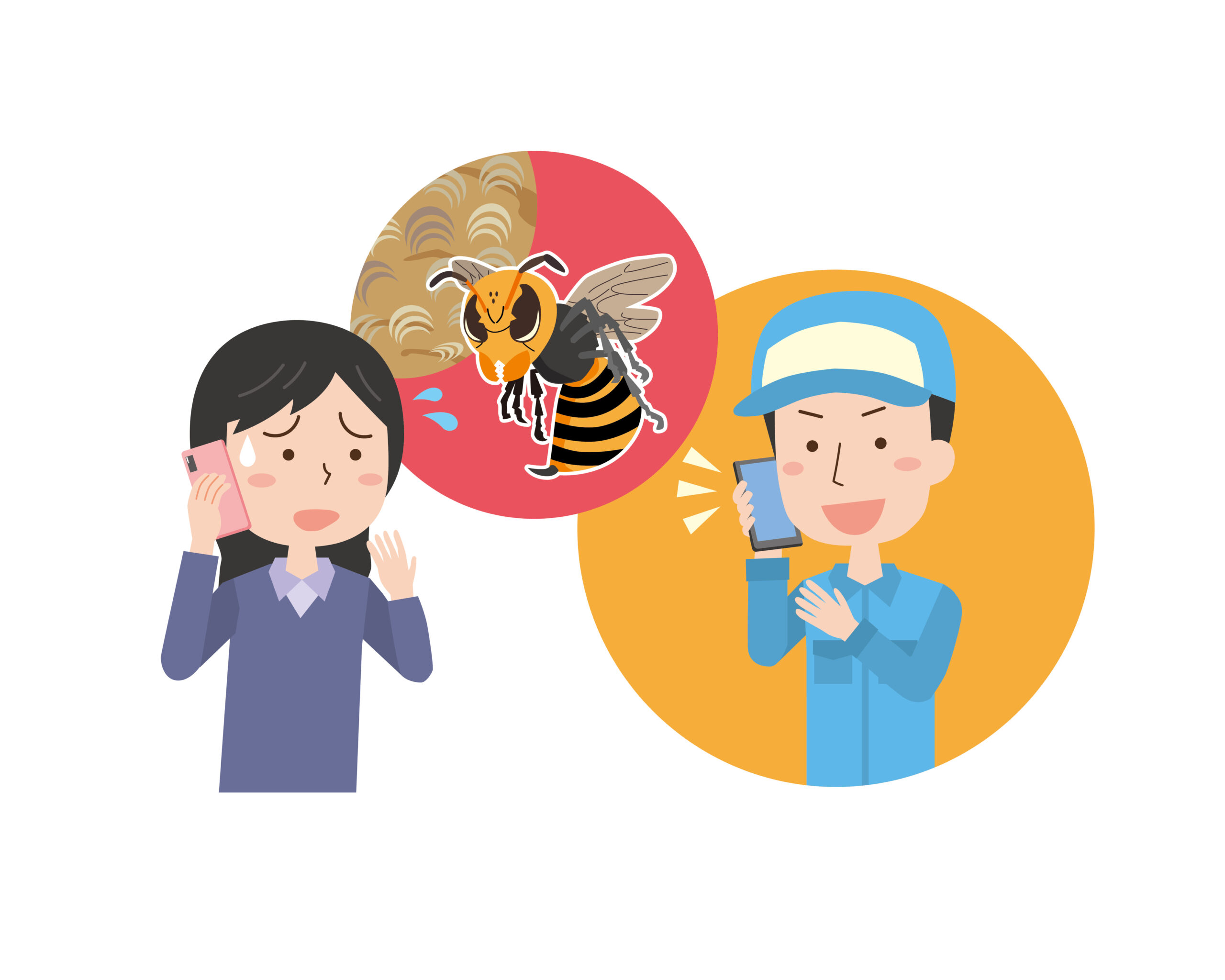When you’re up against an invisible enemy, it’s only logical to call in the pest controllers, isn’t it? But before you do, it’s crucial to understand who you’re inviting into your home and why.
You’re likely familiar with the nuisances of common household pests, but identifying the signs that it’s time to call a professional can be trickier than you think. Choosing the right pest controller isn’t just about who’s available; it’s about finding a skilled expert who can address your specific problem efficiently and effectively.
As we explore the intricacies of pest control, from the types of professionals to the treatment processes and beyond, you’ll uncover the critical factors that influence your decision. Stick around to learn how to protect your home and, ultimately, your peace of mind.
Key Takeaways
- Pest control is important for managing and eliminating unwanted pests effectively.
- DIY solutions may not always be effective, and professional intervention may be necessary.
- Pest controllers specialize in residential, commercial, or agricultural pest control and have the knowledge and qualifications to address specific pest control needs.
- Choosing the right pest control professional is crucial, and factors such as licensing, customer testimonials, and a focus on safety and effectiveness should be considered.
Understanding Pest Control

Delving into pest control, you’ll find it’s an essential service designed to manage or eliminate unwanted critters that pose risks to your health, property, and comfort. It’s a field surrounded by myths and misconceptions, often leading homeowners to rely on DIY solutions that may not always be effective.
You’re not alone in wanting to protect your space from invaders; it’s a common goal shared by many, fostering a sense of community and belonging in seeking solutions.
Pest control myths, such as the belief that cleanliness alone can prevent infestations, can mislead you into overlooking the necessity of professional interventions. While maintaining a clean environment is beneficial, it doesn’t guarantee immunity against pests.
Similarly, DIY solutions can offer temporary relief, but they seldom address the root of the problem. This is where the expertise of a pest controller becomes invaluable. They’re equipped with the knowledge and tools to not only eliminate current infestations but also to implement preventive measures, ensuring your home remains a safe and comfortable haven for you and your loved ones.
Types of Pest Controllers
Understanding the need for professional pest control opens the door to exploring the various types of pest controllers available to tackle different infestations. You’re not just looking for someone to remove pests; you’re seeking a specialist whose qualifications align with your specific pest dilemma. Whether it’s rodents, insects, or more elusive wildlife, each pest controller brings a set of skills certified by rigorous training and qualifications.
Pest controller qualifications aren’t just fancy titles; they’re your assurance that the person handling your pest problem knows exactly what they’re doing. These certifications come from reputable regulatory bodies dedicated to maintaining standards in pest control. They ensure that your pest controller is up-to-date on the latest, most effective, and safest pest management techniques.
You’ll find that pest controllers specialize in areas like residential, commercial, or agricultural pest control, each with its nuances and demands. There are those adept at dealing with common household pests like ants and cockroaches, and others with expertise in more challenging infestations such as termites or wildlife management. Choosing the right pest controller means aligning their expertise with your pest control needs, guided by their qualifications and the oversight of regulatory bodies. This match ensures you’re not just getting a service; you’re gaining peace of mind.
Common Household Pests

You’ll often find that common household pests, such as ants, cockroaches, and mice, aren’t just nuisances but can also pose significant health risks. Understanding their pest lifecycles is crucial to effectively managing them. For instance, the rapid reproduction rate of cockroaches means they can quickly overrun your home, spreading bacteria and allergens. Similarly, mice, known for their ability to squeeze through tiny gaps, can contaminate food and spread diseases.
Knowing about natural predators is equally important. For example, spiders, though often considered pests themselves, play a key role in controlling populations of insects like flies and mosquitoes. This interconnectedness highlights the importance of a balanced approach to pest control — one that respects the ecosystem while protecting your home.
Managing common household pests isn’t just about immediate removal. It’s about understanding the bigger picture, including pest lifecycles and the role of natural predators. This knowledge empowers you to make informed decisions, ensuring your home remains a safe and healthy environment for you and your loved ones.
Signs You Need an Expert
While it’s crucial to recognize common household pests and their natural predators, there are clear signs that indicate it’s time to call in a professional pest controller. You’re not alone in this; every home faces its challenges, and when DIY solutions fail, it’s a clear signal you’re dealing with a problem that’s beyond the average toolkit.
If you’ve tried the sprays, traps, and home remedies, yet the pests persist, it’s a sign they’ve got the upper hand.
Seasonal infestations can be particularly stubborn. As the seasons change, certain pests become more active, seeking shelter and resources within your home. It’s not just about the nuisance; these invaders can pose serious health risks and cause property damage.
When you notice an uptick in pest activity that correlates with the changing seasons, it’s a strong indication that professional intervention is necessary.
Choosing the Right Professional

Recognizing the need for a professional pest controller is the first step; now it’s crucial to select the right expert to tackle your specific pest problem effectively. The process can feel overwhelming, but you’re not alone. Trusting in a community of fellow homeowners who’ve navigated this journey can guide your decision and assure you that you’re making the right choice.
Start with licensing verification. This isn’t just a formality; it’s your assurance that you’re dealing with a professional who meets the regulatory standards for pest control. It’s about peace of mind, knowing that the person entering your home has the expertise and is held to a standard of practice and ethics.
Then, delve into customer testimonials. These aren’t just stories; they’re experiences, shared by people just like you, who’ve faced the same battles against pests. Reading through these testimonials gives you insight into how the pest controller works and how they interact with their clients. It’s about finding someone who not only eradicates pests but does so with respect for your home and your concerns.
Choosing the right pest control professional is about connecting with an expert who values safety, effectiveness, and customer satisfaction as much as you do.
The Treatment Process
Understanding the treatment process is crucial in ensuring your home becomes pest-free efficiently and safely. Once you’ve chosen the right professional, they’ll assess your situation to determine the most effective treatment plan, keeping chemical safety at the forefront. It’s essential to understand that the products used are designed to target pests while minimizing risk to you, your family, and your pets. Your pest controller will explain how to prepare your home for treatment and any precautions you should take.
The treatment duration varies depending on the severity of the infestation and the type of pests. Some treatments require a single visit, while others might need a follow-up to ensure all pests are eradicated. Your pest controller will provide a clear timeline, so you know exactly what to expect.
You’re not just hiring someone to eliminate pests; you’re partnering with a professional dedicated to restoring your peace of mind. They’re there to answer your questions, address your concerns, and ensure the treatment process is as smooth and effective as possible. Remember, your safety and satisfaction are paramount. Trust in their expertise and you’ll soon enjoy a pest-free home.
Prevention and Maintenance

After eradicating pests from your home, it’s essential to focus on prevention and maintenance strategies to ensure they don’t return. You’re now part of a community that values a pest-free living environment, and it’s crucial to take proactive steps to maintain it.
Embrace DIY solutions as your first line of defence. Regularly inspect your home for any cracks or openings and seal them promptly. This simple action can significantly deter pests from entering your space.
Additionally, be mindful of seasonal changes, as they often dictate pest behaviour. For instance, as winter approaches, pests seek warmth and shelter, making your home a prime target. Adapt your maintenance routine to these changes by reinforcing your home’s defences before each season.
Implementing a routine cleaning schedule also plays a pivotal role in pest prevention. Ensure that food is stored properly and that trash is disposed of regularly. It’s these small, consistent actions that create an unwelcoming environment for pests.
The Cost of Pest Control
While implementing prevention and maintenance strategies plays a crucial role in keeping pests at bay, it’s equally important to consider the financial aspect of pest control efforts. Understanding the cost of pest control is vital in crafting a plan that fits your budget and needs.
The expense of pest control can vary widely, influenced by factors like the size of your property, the type of pests, and the severity of the infestation. DIY methods can offer a cost-effective solution for minor problems. They allow you to tackle pests using off-the-shelf products. However, for more severe or persistent issues, professional pest control services are recommended. These experts possess the knowledge and tools to address your pest problems more efficiently, though at a higher cost.
Seasonal variations also play a role in pest activity and, consequently, the cost of control measures. Certain pests are more active during specific seasons, requiring increased vigilance and potentially more frequent treatment during these times.
Incorporating both DIY methods for minor, manageable pest issues and professional services for more complicated situations can provide a balanced approach. This strategy ensures you’re not only protecting your home but also managing your pest control expenses wisely.
You may also enjoy reading this article
Was This Article Helpful?
- Please provide feedback and comments to help us improve our content.
- Share your experiences and any additional tips you have for dealing with pests.
Share this Post


